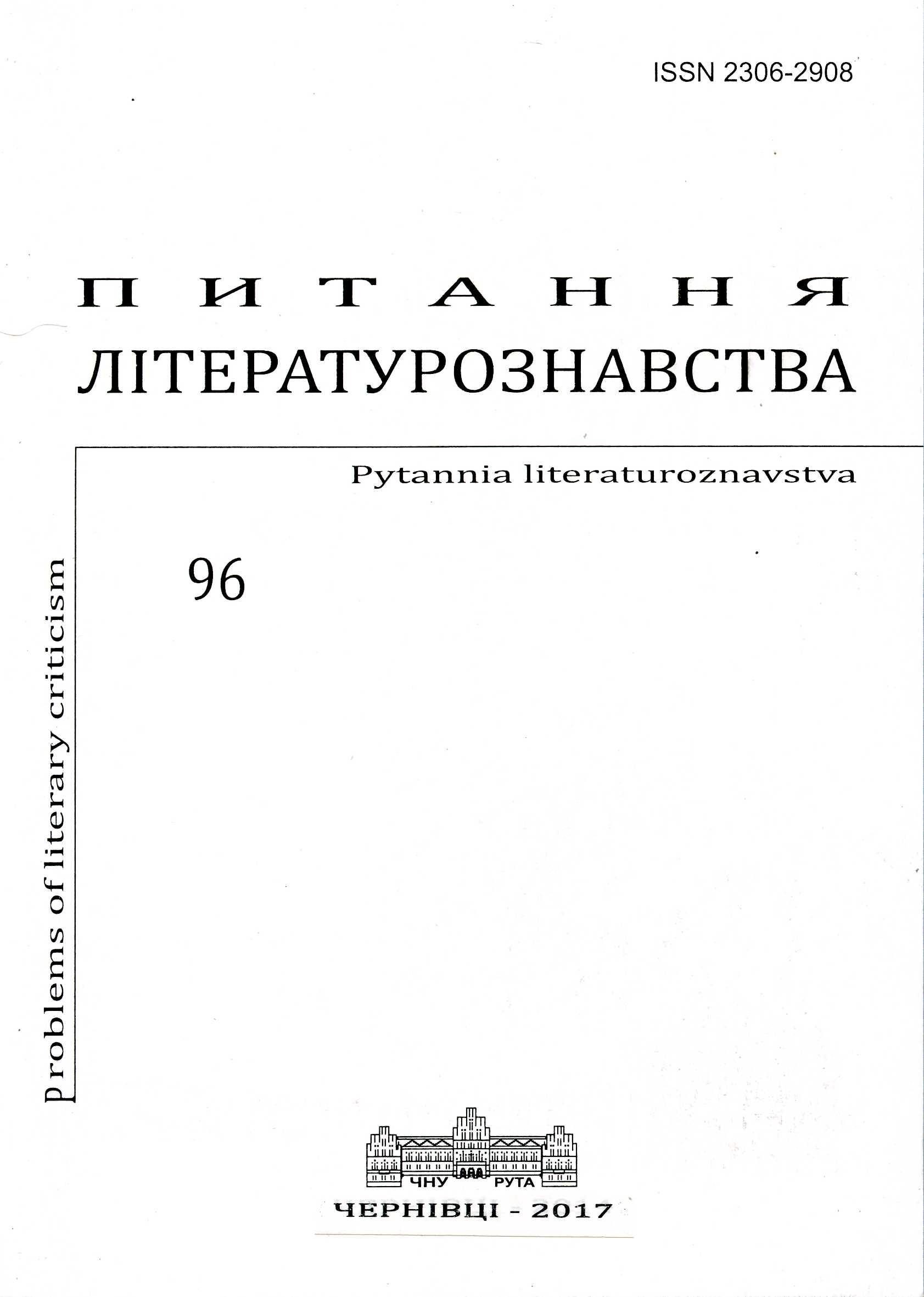Видалення тексту як диспозитив ієрархізації другорядного (роман Ж. Вайцмана “Заборонене”)
Text’s Suppression as the Apparatus of the Marginality Hierarchy (Gérard Wajcman’s Novel “The Forbidden”)
Author(s): Galyna DranenkoSubject(s): Language and Literature Studies, Studies of Literature, French Literature, Theory of Literature
Published by: Чернівецький національний університет імені Юрія Федьковича
Keywords: the marginality in the artwork; paratext; author’s endnote; Literature of the Holocaust; Gérard Wajcman; “The Forbidden”;
Summary/Abstract: The article deals with the problem of the removing of the secondary’s status in the artwork in term of the functioning of its paratextual elements. We studied Gérard Wajcman’s novel “The Forbidden” (1986, republished in 2016), it’s composed of the author’s endnotes and the body text is lacking. We outlined the discursive and the narrative text’s structures that favor the changing of the hierarchy’s status, from paratext (lower) to the body text (higher). We examined other paratextual elements (title, dedication, opening information etc.) as the body text is lacking they have the essential function in the reader’s interpretation of the text. It is described as the new novel republishing “The Forbidden” modified the work’s receptive capacity on condition of the changing of the publisher’s peritext (book’s format, epilogue is added, the writing of the author’s name is changed) and epitext (the author’s artistic heritage, the biography in media). We analyzed as this modification transform the code and the modus of the reader’s perception of the novel. It is shown that the text expected by receiver is lacking not because it’s waiting to be fill on the basis of the interactive game with the reader the main reason is that this text is impossible, unrealizable, forceless. This text says about unspeakable and in this form, it is completely self-sufficient as it represent the oblivion, erasing memory, its deficiency, its absence. We stressed that the lacking of the boy text in Gérard Wajcman’s novel, which is the part of the paradigm “Literature of the Holocaust”, is the symbol of the obliteration and of the language loss in general and particularly of the family’s language Yiddish. We concluded that the text’s delete is not poetic and stylistic way; it is the apparatus of the minor hierarchy.
Journal: Питання літературознавства
- Issue Year: 2017
- Issue No: 96
- Page Range: 7-24
- Page Count: 18
- Language: Ukrainian

